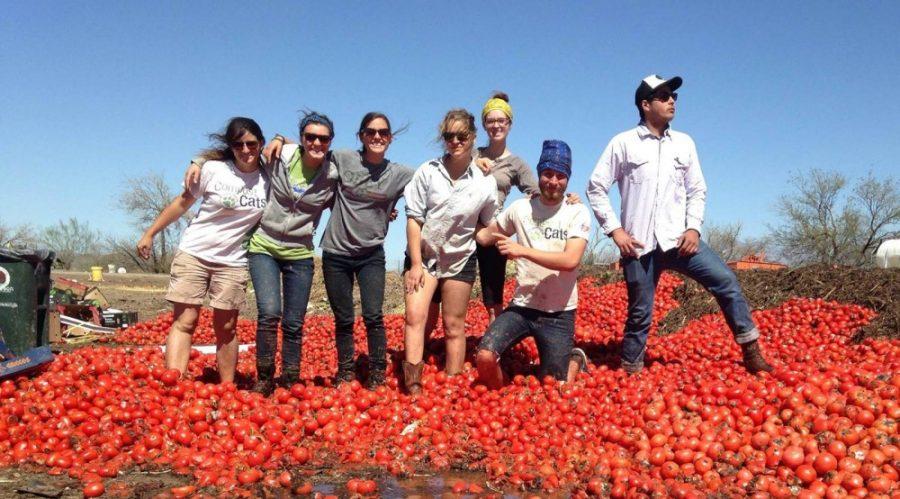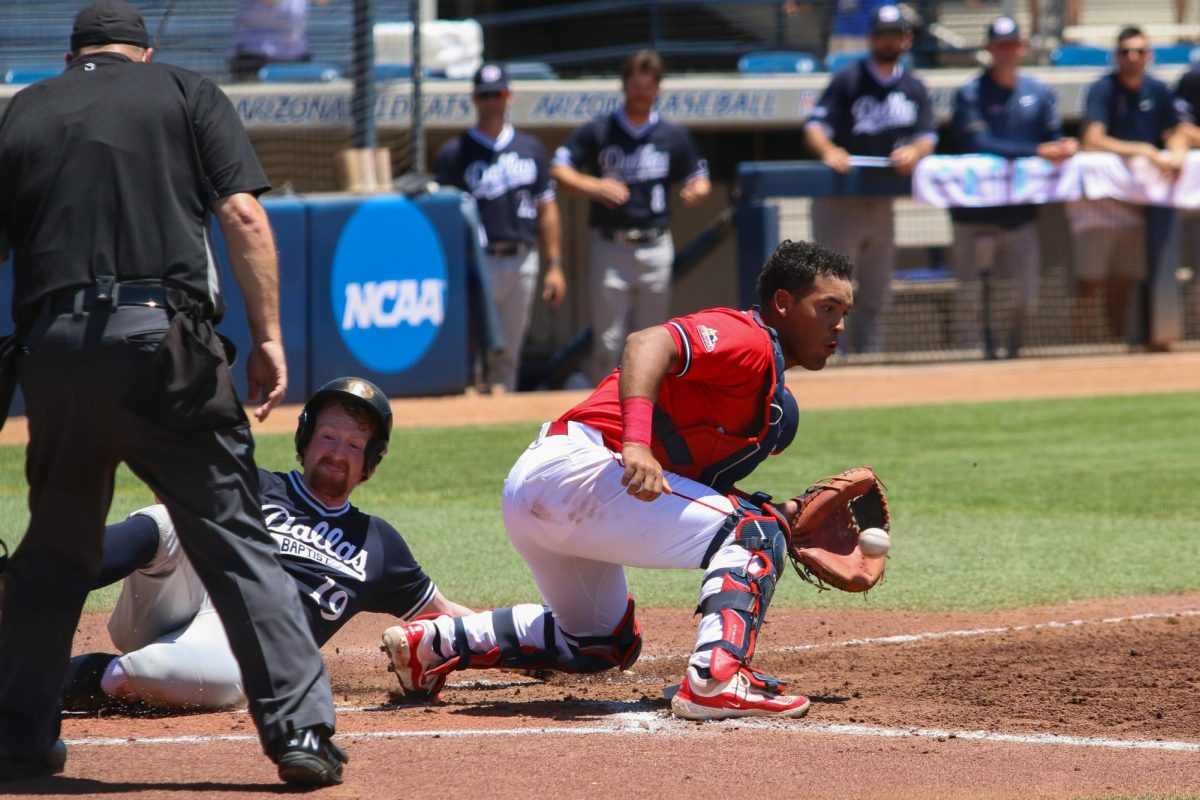As scientists’ predictions about the impact of human-induced climate change become increasingly dire, it will be more important than ever to have easy, inexpensive ways to reduce our carbon footprints.
One often overlooked method of environmental protection is composting—disposing of organic waste, like leftover food scraps, under conditions that promote aerobic decomposition which produces less greenhouse gases.
For the last several years, members of Compost Cats, a UA student-run organization, have been working tirelessly to promote the use of composting in Tucson.
The organization collects food scraps from local businesses and UA restaurants, processing the scraps into usable compost at San Xavier Co-Op Farm. In the past, this collection process was fully student-driven. Members of Compost Cats would drive to local businesses in trucks, pick up bins of food waste themselves, and haul the bins back to the farm.
Now, the business model has begun to change. This August, Compost Cats’ hard work paid off when it became recognized as the city of Tucson’s official composting service. The City has agreed to pick up food waste bins using old recycling trucks and will carry the bins to San Xavier, which will make the collection process more efficient and cost-effective.
“Prior to the partnership, we were hauling around our bins in a stake truck for all our businesses,” said Shelby Hoglund, an environmental sciences senior and Compost Cats student farm crew manager. “Now we have two runs a week to the two Whole Foods Market grocery stores that are outside of the city limits. Other than that, the city does the organics hauling.”
Although the student group has worked with the city of Tucson in the past, this newly formalized relationship will help Compost Cats partner up with more businesses and increase its overall impact.
“Our partnership with the city of Tucson will allow us to expand to businesses that we may not have had the resources or time to reach out to,” Hoglund said. “More businesses are reaching out to us … wanting [Compost Cats] to compost their organic waste because more people know about our organization and want to support it.”
According to Taylor Sanders, a sustainable plant systems senior and sales and development manager for Compost Cats, composting provides a viable alternative to traditional landfills because it avoids methane buildup and allows organic matter to decompose in the presence of oxygen.
“When you put organic matter into a landfill, it sits there and it gets waste piled on top of it,” Taylor said. “As things pile up and become tightly packed, the [organic matter] loses its access to oxygen. Even though it eventually decomposes, it decomposes anaerobically, and that produces methane.”
Methane is one of the single most destructive greenhouse gases in the atmosphere, even more damaging than carbon dioxide. Methane traps an enormous amount of heat, making its per-pound effect on climate change over 20 times greater than that of carbon dioxide, according to the U.S. Environmental Protection Agency.
More than 60 percent of methane emissions stem from human activities like industry and agriculture, with approximately one-fifth of this fraction coming directly from landfills.
“Taking food scraps, mixing them with a bit of green waste and water and allowing natural microbes to go to work is an environmentally friendly process that produces a usable product,” Sanders said. “The healthy soil that results from composting is nutrient rich and has a high water holding capacity, and it can be used on farms and gardens.”
Follow Elizabeth Hannah on Twitter.









